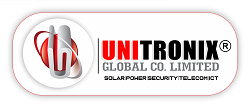RENEWABLE ENERGY MANAGEMENT AND FINANCE TRAINING

Get Trained! Be Certified! Be Employable
RENEWABLE ENERGY MANAGEMENT AND FINANCE TRAINING
WHAT YOU LEARN
Introduction to Renewable Energy Management: Overview of renewable energy sources, technologies, and their significance. Understanding the role of renewable energy in addressing energy and sustainability challenges.
Renewable Energy Project Development: Steps involved in planning, designing, and implementing renewable energy projects. Site assessment, feasibility studies, and project scoping. Project Financing and Funding Sources: Exploring financing options, investment models, and funding sources. Securing grants, loans, equity, and other financial resources. Financial Analysis and Modeling: Financial metrics, cash flow analysis, and ROI calculations for renewable energy projects. Developing financial models to assess project viability and profitability. Risk Management and Mitigation: Identifying and assessing risks associated with renewable energy projects. Developing strategies to mitigate financial and operational risks. Energy Policy and Regulatory Framework: Understanding government policies, incentives, and regulatory mechanisms for renewable energy. Navigating compliance and permitting processes. Environmental and Social Impact Assessment: Evaluating the environmental and social implications of renewable energy projects. Implementing sustainable practices and addressing community concerns. Power Purchase Agreements (PPAs) and Contracts: Understanding PPAs, feed-in tariffs, and other contractual arrangements. Negotiating agreements with energy consumers and off-takers. Renewable Energy Technologies and Integration: In-depth knowledge of various renewable energy technologies (solar, wind, hydro, etc.). Integrating renewable energy systems into existing grids and infrastructures. Project Management and Implementation: Leading and managing renewable energy projects from inception to completion. Organizing resources, scheduling, and stakeholder coordination. Monitoring and Performance Optimization: Implementing monitoring systems for tracking energy production and performance. Analyzing data to optimize system efficiency and output. Community Engagement and Stakeholder Communication: Engaging with local communities, stakeholders, and regulatory bodies. Effective communication strategies to gain support and address concerns. Ethical and Social Considerations: Addressing ethical and social responsibility aspects of renewable energy projects. Promoting fair practices, local benefits, and inclusivity. Case Studies and Real-world Examples: Analyzing successful and innovative renewable energy projects. Learning from practical experiences and lessons learned.OUR AIM
UNITRONIX TRAINING ACADEMY (UTA) is the training arm of UNITRONIX GLOBAL CO. LIMITED; one of the fastest growing reputable RENEWABLE ENERGY companies in Nigeria. In partnership with the world’s top- rated solar modules manufacturer OEM across the world, we deliver intensive theoretical, practical and on-site installation training in solar energy. Our trainings are delivered in a conducive environment, with experienced professionals and hands-on practical sessions. Our training sessions are very interactive to ensure full understanding of all topics covered. At the end of the training, every trainee will be certified and accredited as a Unitronix Dealer for the purposes of partnership.
BENEFITS OF THIS TRAINING
- Become a certified installer/professional
- Gain employment with premier solar companies
- Engage in business partnerships and mentoring with UTA, the industry’s foremost training institution.
- Stay informed about emerging solar technologies and applications firsthand
- Achieve internationally recognized certification
- Join the UTA alumni network, unlocking exclusive benefits
- Tap into the expertise of our team of skilled engineers
- Attain membership in leading renewable energy associations

